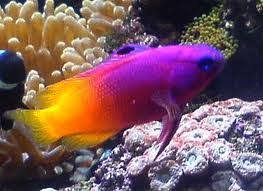The Dragon in Popular Chinese Television Programs: A Symbol of Tradition and Modernity

The dragon, one of the most significant and enduring symbols in Chinese culture, has long been associated with power, wisdom, and good fortune. Throughout Chinese history, this mythical creature has held a prominent place in the arts, religion, literature, and spiritual beliefs. Today, the dragon continues to hold a special place in modern Chinese media, including in the country’s television programs. With its deep cultural and historical significance, the dragon frequently appears in Chinese TV shows, both in traditional dramas and modern adaptations, often embodying themes of authority, protection, and mystical power.
In this article, we will explore the role of the dragon in several popular Chinese television programs. By delving into how the dragon is depicted in contemporary TV dramas, we can uncover how this ancient symbol is being reinterpreted and integrated into modern Chinese entertainment. From historical dramas to fantasy series, the dragon continues to play an essential role in capturing the imagination of the audience while honoring traditional Chinese values and culture.
The Dragon in Chinese Television: A Symbol of Power and Protection
In Chinese culture, the dragon is widely seen as a symbol of imperial power, heavenly protection, and good fortune. These attributes are often reflected in the portrayal of dragons in Chinese television programs. While the dragon’s role can vary depending on the genre and the storyline, the symbol generally evokes a sense of supernatural power and divine intervention.
In historical dramas, dragons often serve as a representation of the emperor’s mandate of heaven or the celestial authority granted to the ruler. In fantasy series, dragons may take on more mystical and magical qualities, aligning themselves with good forces, often helping the protagonists in their quests for justice, peace, and prosperity. In modern Chinese TV, the dragon continues to symbolize strength and protection, providing a bridge between mythology and modern entertainment.
The Dragon in Popular Historical Dramas
Historical dramas have been a staple of Chinese television for decades, and many of these series incorporate the dragon as a key motif to underscore themes of imperial power and authority. The dragon often appears in these dramas in the form of dragon robes, emblems, and decorative motifs, emphasizing the emperor’s connection to the divine and his legitimate rule.
One famous historical drama where the dragon plays a prominent role is “Empresses in the Palace” (also known as “Zhen Huan Zhuan”). This series, set in the Qing Dynasty, follows the life of Zhen Huan, a concubine who ascends to become the Empress. While the dragon in this drama does not appear as an actual creature, its symbolism is heavily present. The emperor’s dragon throne and the dragon robe are central to the story, representing his divine rule and the power dynamics within the imperial palace. The dragon motif is also used to symbolize the competition for imperial favor and the intrigues that take place in the emperor’s court.
Another famous drama, “The Story of Yanxi Palace” (“Yanxi Gong Lue”), also set in the Qing Dynasty, features dragons as important visual symbols in the palace. The dragon robes, worn by the emperor and other members of the imperial family, carry the weight of their authority. The presence of the dragon underscores the emperor’s mandate from heaven, reinforcing the themes of political intrigue, loyalty, and power struggles that are central to the drama.
In these historical dramas, dragons are often depicted as symbols of the emperor’s sacred role and his divine protection, embodying the belief that the ruler was chosen by the gods to maintain order and harmony in the empire. While the dragons are not directly involved in the plot or appear as mythical creatures, their symbolic presence reinforces the overarching themes of the dramas.
The Dragon in Fantasy Dramas
In the realm of fantasy and action dramas, dragons are frequently portrayed as actual creatures, often imbued with magical powers. These dragons are more than just symbols—they are characters in their own right, often aiding or hindering the protagonists on their quests.
One of the most popular modern Chinese fantasy dramas featuring dragons is “The King’s Avatar” (“Quan Zhi Gao Shou”). While the series primarily focuses on the world of competitive e-sports, there are elements of fantasy that draw on traditional Chinese symbolism. The protagonist, Ye Xiu, is an expert player in an online game, and the game world incorporates elements of traditional Chinese mythologies, including the dragon. The dragon in this context represents both the ancient powers and the modern technological advancements of China, blending the traditional with the contemporary.
A more direct example of dragons being central to the plot is “The Four” (also known as “Sì dà”), a Chinese fantasy drama based on the legend of the Four Great Gods. This series is set in a mythical world where dragons are not only symbolic of power but also serve as actual beings with abilities to help or challenge the human protagonists. The dragons in this show are integral to the supernatural world the characters inhabit, often guiding or protecting them as they face various challenges.
“Journey to the West” (also known as “Xi You Ji”), a famous Chinese classic novel that has been adapted into numerous television series, also includes dragons in various forms. The Dragon King of the East Sea, a character from the novel, is an actual dragon who possesses immense magical powers. The dragon serves as a protector of the sacred scriptures and offers assistance to the main characters during their journey. This story, deeply rooted in Chinese mythology, illustrates how dragons are often portrayed as protectors or guardians in Chinese fantasy television, serving as powerful allies for the protagonists.
The Dragon in Reality Shows
In addition to traditional dramas, dragons have also made appearances in reality TV shows, where they are often used as symbols of luck, strength, and wisdom. One example is the popular Chinese reality competition show, “Chinese Idol”, where contestants perform in front of a panel of judges to win the title of “Chinese Idol”. The dragon is frequently featured as part of the show’s branding and decorations, highlighting its cultural significance as a symbol of strength and success. The dragon motif appears on various sets, clothing, and promotional materials, underscoring the idea of achievement and excellence.
In “The Dragon Boat Festival” reality show, the traditional dragon boat races take center stage, and the dragon is depicted as a symbol of the festival’s history and cultural significance. Contestants and participants in the reality show engage in dragon boat racing while learning about the origins of the festival, the myths surrounding the dragon, and how this ancient tradition continues to be celebrated in modern China.
The Dragon as a Cultural Bridge in Chinese Television
The dragon serves as a powerful cultural bridge in Chinese television, connecting the past and the present, as well as tradition and modernity. Whether as a symbol of imperial power in historical dramas or a mystical creature in fantasy series, the dragon continues to captivate audiences and evoke a sense of awe. It reflects the values and beliefs of Chinese society, from the divine authority of the emperor to the mystical powers of the supernatural.
In modern Chinese television, the dragon remains a symbol of national identity and cultural pride, representing the nation’s long history and its deep connection to mythology, tradition, and spirituality. It is not just a mythical creature—it is a cultural symbol that transcends time, reminding the audience of the importance of heritage, strength, and unity.
Conclusion
In Chinese television, the dragon plays a multifaceted role, serving as a symbol of power, protection, and wisdom. From its presence in historical dramas, where it represents imperial authority, to its appearance in fantasy series, where it serves as a magical creature aiding the protagonist, the dragon continues to captivate the imagination of audiences both in China and abroad. Its symbolism is deeply rooted in Chinese culture, making it an enduring and powerful image that is both relevant in modern times and respectful of ancient traditions.
As Chinese television continues to evolve, the dragon remains a central figure in Chinese pop culture, bridging the gap between the old and the new, and ensuring that its influence is felt for generations to come. The dragon is not just a mythical creature; it is a testament to the rich cultural heritage of China and the unbreakable bond between the country’s past and its present.

